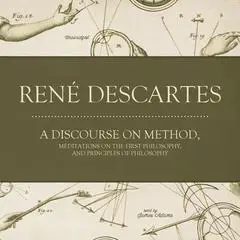 Play Audiobook Sample
Play Audiobook Sample
Leviathan: or The Matter, Form, and Power of a Commonwealth, Ecclesiastical and Civil Audiobook
 Play Audiobook Sample
Play Audiobook Sample
Quick Stats About this Audiobook
Total Audiobook Chapters:
Longest Chapter Length:
Shortest Chapter Length:
Average Chapter Length:
Audiobooks by this Author:
Publisher Description
The leviathan is the vast unity of the State. But how are unity, peace, and security to be attained? Hobbes’ answer is sovereignty, but the resurgence of interest today in Leviathan is due less to its answers than its methods: Hobbes sees politics as a science capable of the same axiomatic approach as geometry.
Written during the turmoil of the English Civil War, Leviathan was, in Hobbes’ lifetime, publicly burnt and even condemned in Parliament as one of the causes of the Great Fire of London in 1666. Its current appeal lies not just in its elevation of politics to a science, but in its overriding concern for peace, its systematic analysis of power, and its convincing apologia for the then-emergent market society in which we still live.
Download and start listening now!
"Este libro es excelente aunque bastante redundante,la forma en que Hobbes crea su estado de naturaleza me parece muy realista, incluso como él considera que se creó el derecho es interesante. "
— Yineth (5 out of 5 stars)
Quotes
-
“Leviathan is a remarkable attempt to explain and justify the institution of government, and it remains one of the masterpieces of political thought.”
— Masterpieces of World Literature
Leviathan Listener Reviews
-
" I enjoyed reading this story. I think the part of Deryn Sharp a commoner, and a girl that disguises herself as a boy in the British Air Service has me rooting for her success. She's a brilliant airman, but is in constant fear that someone will find out her true identity. <br/> "
— Michele, 10/21/2011 -
" Interesting insight into human nature, and the "social contract theory." "
— Ashley, 9/24/2011 -
" This is an excellent treatise on Christianity and the Christian view of government. I can't agree with every opinion, but Hobbes states his view well. "
— Jen, 8/9/2011 -
" has he not had his heart set on reconciling his theories with religion (yet still managing to outrage Catholics and protestants alike) and insisting that monarchy is the only way to rule, this could have been a good book. "
— Milo, 7/23/2011 -
" This is indescribably bad philosophy. From first premise to conclusion, it's absurdity is rarely matched and never surpassed. "
— edward, 7/15/2011 -
" This guy really liked to define words. Not an easy thing to do and definitely reveals personal bias. "
— Mike, 6/28/2011
About Thomas Hobbes
Thomas Hobbes (1588–1679) was born in Wiltshire, England. Educated at Oxford, where he studied classics, he later became tutor to the son of William Cavendish, Baron of Hardwick. His first published work was a translation of Thucydides’ History of the Peloponnesian War in 1628. An interest in science and philosophy soon developed, heightened by extended travels in Europe. This led to Leviathan—the crowning achievement of his political science. It was so influential that it came under widespread attack and was in danger of condemnation by the House of Commons. Hobbes perforce lived quietly and published little more on political matters. At the age of eighty-four, he composed an autobiography in Latin verse and within the next three years translated the whole of Homer’s Odyssey and Iliad.
About James Adams
James Adams is one of the world’s leading authorities on terrorism and intelligence, and for more than twenty-five years he has specialized in national security. He is also the author of fourteen bestselling books on warfare, with a particular emphasis on covert warfare. A former managing editor of the London Sunday Times and CEO of United Press International, he trained as a journalist in England, where he graduated first in the country. Now living in Southern Oregon, he has narrated numerous audiobooks and earned an AudioFile Earphones Award and two coveted Audie Award for best narration.
























